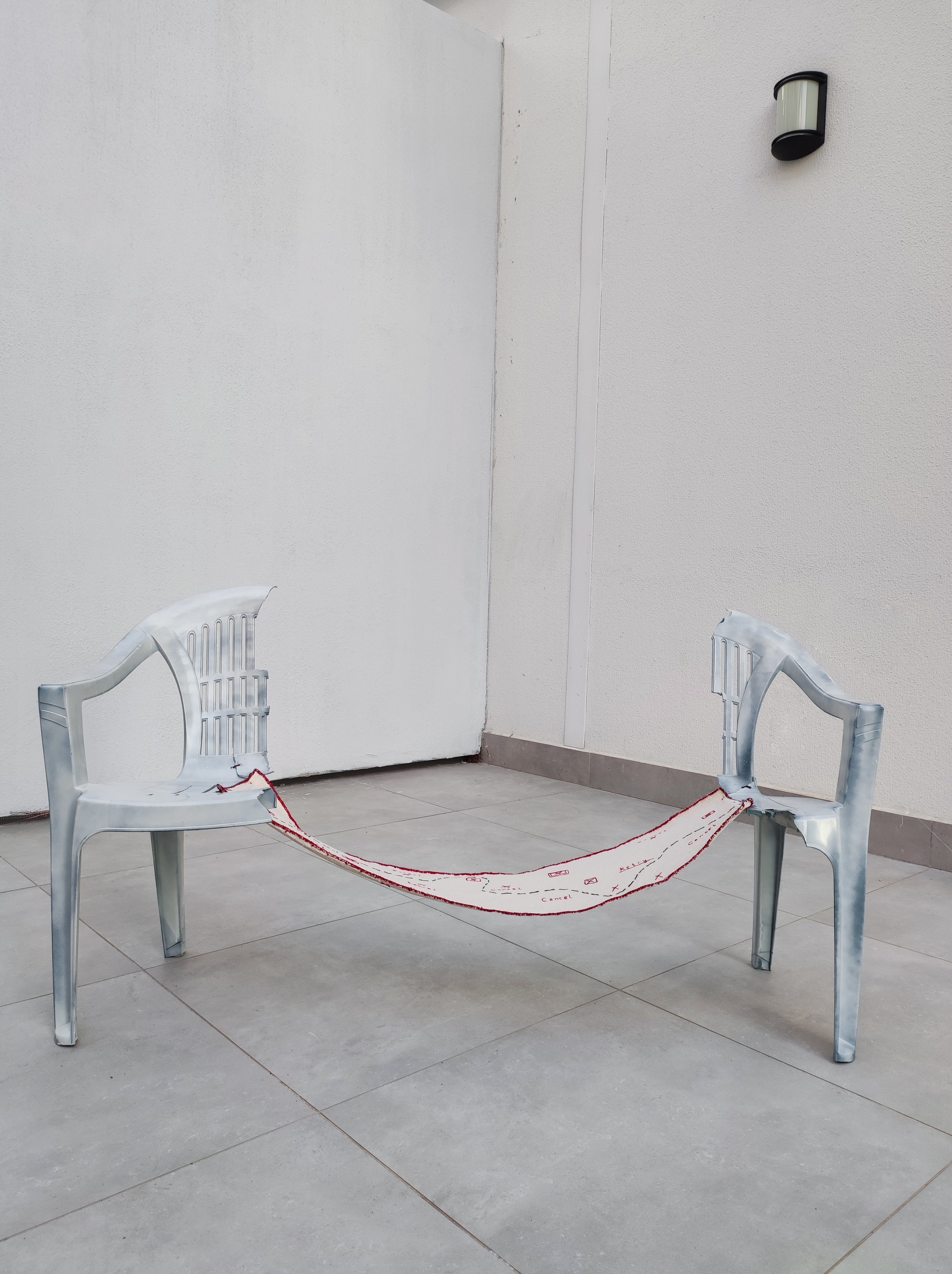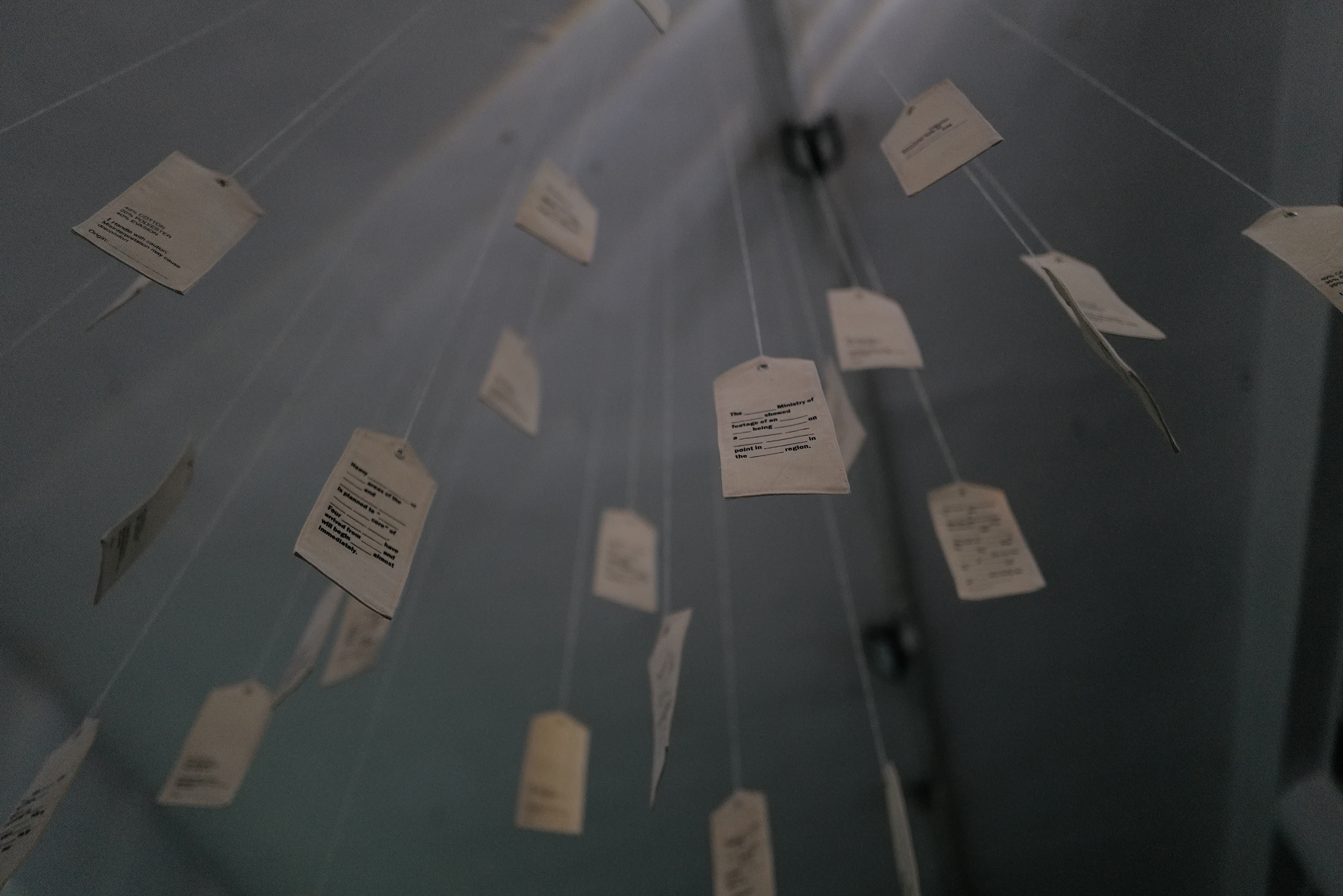
Daria Goncharova
She/her
Conceptual artist
Country: Serbia – Russia
Discipline: Visual art – Participatory art
Type of public space: Urban – Periphery – Industrial
PLATFORM 2025 - 2028 Open call #1

Biography
Daria Goncharova is a Russian-born interdisciplinary artist whose practice explores the intersection of language, social structures and documents. She has been in exile since 2022 and currently lives in Belgrade, Serbia, where she is involved in the local art community.
With a background in civil engineering from the University of Architecture and Civil Engineering (2011-2015), she also graduated from the Joseph Backstein Institute of Contemporary Art in 2024.
Her work, rooted in different conceptual methodologies, explores themes of identity through the prism of bureaucratic processes, as well as processes of interaction with everyday life. She has participated in various residencies each year since 2021. In 2024 she was awarded the "Culture Moves Europe" grant, which supports her "Ritualising uncertainty" project.
At the heart of her work is also a focus on how meaning is constructed and deconstructed. So Daria often works with assemblage and the re-contextualization of objects, as seen in "Fragments of Navigation" projects (2023-2025), "Object Picket" (2023), and "Connection is Unstable" (2022).
Her work has been exhibited in Switzerland, Serbia, Germany, Finland, Montenegro, Armenia, Kyrgyzstan and Russia. She has participated in numerous educational programmes as a laboratory, continually expanding her exploration of how art can mediate social transformation.
Artistic project
The project "Assembly Contour" is concerned with the transformation of everyday objects, redefining their utilitarian function as symbols of political resistance and hope.
At the heart of the work is a focus on how meaning is constructed and deconstructed. Simple objects, often overlooked in their ordinariness, are imbued with layers of interpretation that oscillate between the poetic and the political. The act of repurposing these objects is not only a gesture of reimagination. In a world where functionality often determines value, the project disrupts this logic by stripping these objects of their practical utility. In this way, the objects cease to be commodities and instead become a symbol of the situation.
The concept of failure serves as a key element in this transformation. Objects that no longer fulfil their intended purpose are not seen as worthless but as bearers of untapped potential. Their failure within the framework of utility opens up a space for dialogue about the fragility of systems, be they economic, social or political.
Through the practical failure of everyday things, it is important for me to talk about the broader themes of resistance, marginality and the search for meaning in a broken world.
Format: installations and interventions
Size of audience:from 80 to 150 people
Specific location: urban place with a small park (the presence of an arched space or canopy spaces nearby will be a plus)
Timing / duration: installation will take 5-7 hours (approximately)





